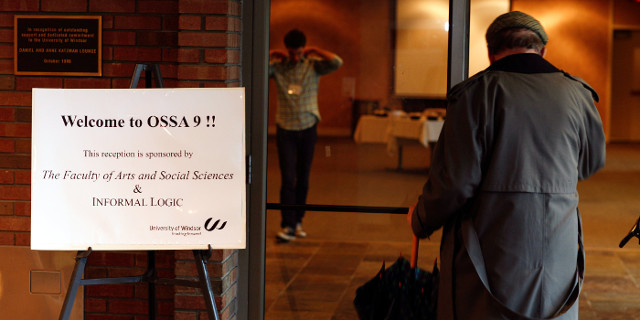
Location
University of Windsor
Document Type
Paper
Keywords
Constitutive rhetoric, Online newspapers, Participatory web media, Political debate, Rhetor-ical citizenship, Vernacular rhetoric
Start Date
18-5-2011 9:00 AM
End Date
21-5-2011 5:00 PM
Abstract
This paper presents the results of an explorative pilot study of political debates among users on NYTimes.com, the online newspaper of The New York Times. The study shows how a number of insti-tutional and vernacular subject positions are constituted and challenged in the debates. This happens in a process characterized by a dialectic between, on the one hand, an institutional call in the technical framing and rhetorical initiation of the debates and, on the other hand, a vernacular response in the users’ com-ments. This process reflects a community deliberating not only collective action but also collective identity and, moreover, subtly indicates the community’s norms of rhetorical conduct in political debates and how they are negotiated.
Creative Commons License

This work is licensed under a Creative Commons Attribution 4.0 International License.
Included in
Deliberating collective action and identity: The dialectic of institutional and vernacular rhetoric in political debates on nytimes.com
University of Windsor
This paper presents the results of an explorative pilot study of political debates among users on NYTimes.com, the online newspaper of The New York Times. The study shows how a number of insti-tutional and vernacular subject positions are constituted and challenged in the debates. This happens in a process characterized by a dialectic between, on the one hand, an institutional call in the technical framing and rhetorical initiation of the debates and, on the other hand, a vernacular response in the users’ com-ments. This process reflects a community deliberating not only collective action but also collective identity and, moreover, subtly indicates the community’s norms of rhetorical conduct in political debates and how they are negotiated.
